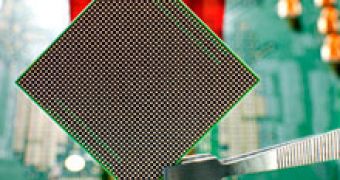The bane of any gadget or even larger electronics and PC products is that they are quite quickly surpassed by newer and better generations, but it looks like this may soon change.
Electronics of all sorts, in these times, are composed of the hardware and software, two halves that cannot operate without the other.
The hardware is fairly difficult to upgrade, involving hardware swapping and such, and there are certain limits beyond which performance cannot be boosted without a total change, from the platform up.
Software, however, has the advantage that it can be updated and upgraded all the time, provided the hardware can handle it.
No doubt IT players and end-users alike have been dreaming of a time when the hardware will be more adaptable, like in Sci Fi movies perhaps.
Apparently, that kind of future is closer than one might think, because a certain company, called Tabula, created an alternative to FPGAs (field programmable gate arrays)
FPGAs are an existing sort of reprogrammable chips that are usually employed in prototype designs, before making a conventional, fixed chip.
The new solutions that Tabula made are cheaper, more powerful and can reconfigure their logic gates whenever a new design becomes available.
In other words, these processors can be updated just like a software application would.
"Imagine you walked into the elevator in a building and then walked back out, and that I rearranged the furniture quickly while you were in there," says Steve Teig, founder and chief technology officer of Tabula. "You would have no way to tell you weren't on a different floor."
The processors in question use a method similar to this. Eight different layouts are cycled through at a rate of up to 1.6 GHz (1.6 billion times per second). The signals encounter the different designs one after another, as if jumping to an entirely different chip each and every time.
Provided the processors are cheap enough, hardware upgradeable phones and the like are actually a real possibility.
There are downsides, however, in the way of power consumption, as pointed out by Rich Wawzyrniak, who tracks FPGAs and related technology for analyst firm Semico Research: “The power consumption if these devices is relatively high, and likely too much for a device like a phone.”

 14 DAY TRIAL //
14 DAY TRIAL //